- Home
- Anne Stuart
Seen and Not Heard Page 12
Seen and Not Heard Read online
Page 12
She realized suddenly that the snoring had stopped and his startlingly blue eyes were open, watching her. She tried to summon a calm smile, but the attempt failed miserably, and to her annoyance she could feel tears stinging at the back of her eyes. She would have thought she’d cried enough by now. It had never been her habit to turn into a watering pot.
“You want to tell me what precipitated all this?” he inquired, scooting back and sitting up against the pillows. He made no move to touch her this time, but his long leg rested against her thigh, sending warmth and a dangerous sort of comfort through her. “Why were you going to leave without seeing me?”
“I shouldn’t have come here,” she said with sudden decisiveness, sitting up and scrambling off the bed.
This time he did touch her, reaching out and stopping her, hauling her back onto the bed with a bare minimum of effort. “If you’re here you came for a reason.” He was very calm, sensible, and that pragmatic quality soothed her. “And I have my stubborn moments. I’m not about to let you go until you tell me what’s wrong.”
She believed him. She sank back with a sigh, next to him on the sagging bed. It was all she could do to keep from falling into the middle, but she dug her fingers into the mattress and kept to her tenuous perch, unwilling to give in to temptation.
“The man I’ve been living with lied to me,” she said, not looking at her companion, keeping her eyes trained on the sloping window and the steady raindrops. She fell silent for a moment, uncertain how to continue.
“He’s been seeing someone else?” Tom prodded gently.
“Oh, God, if only that were true. It would make things so simple,” Claire said, her voice weary. “But I don’t think so. As far as I can tell, he only wants me.”
“I can understand that.” The comment was casual, almost thrown away, and Claire wished she dare look at him, to see whether he meant it or not. She kept staring at the rain.
“He lied about the apartment. He said it was his, had been in his family for generations. But it wasn’t, it belonged to his dead wife.
“That doesn’t seem that terrible a lie. A lot of people make up things to feel more important.”
“He told me Nicole was his daughter, but she wasn’t. She’s only his stepdaughter, and they hate each other. I never could understand how someone could hate their own child, but that explains it. He told me Nicole’s grandmother couldn’t speak English, and she probably speaks it better than I do.”
“Still relatively harmless,” Tom said. “How did you find out these were lies?”
“I went with Nicole to see her grandmother anyway. I thought she could translate for us, but there was no need.”
“Let me guess. The grandmother hates Marc. And she told you all these things about him. Have you ever stopped to think she might possibly be biased?”
She did turn to look at him then. “Harriette Langlois told me a great many things, most of which I took with a grain of salt. She thinks Marc murdered her daughter. I know that’s impossible. Marc simply isn’t the type to kill. He can charm, manipulate, twist things around to suit him, but he hasn’t got the brutality to kill. He hasn’t got the honesty.”
Tom shifted on the sagging bed, moving marginally closer. “That’s a strange way to put it.”
“It is, isn’t it? But I think killing requires a certain amount of honesty. You have to admit you hate, you have to confront the evil that lives inside you in order to kill another human being. I don’t think Marc has done that.”
“So what are you worried about?” Tom prodded gently.
“You heard Solange yesterday in the café. Marc told me he was going on tour. Solange said he couldn’t be. She would have no reason to lie.”
“And Marc would?”
“I don’t know. He doesn’t seem to trust me. He’s always watching me, waiting for God knows what.” She shivered in the chilly air. Her silk dress was still damp, clinging to her, and Tom’s garret had little if any heat.
“Is that it?”
She hesitated. She could stop then—the list of lies was long enough. The room was filled with shadows; there was something comfortingly anonymous about sitting on the bed, talking. If she just kept watching the raindrops run relay races with each other down the sloping skylight she could say anything.
“He lied about the police. He said they were looking for me.”
“Were they?”
“No,” said Claire flatly.
Silence. “Did they have any reason to?”
Claire pulled her knees up, dropping her chin onto them. “Yes,” she said finally. “They did.”
“And Marc knew that.”
“Somehow,” she said, talking to her knees. “I never told him.”
“So why don’t you tell me?” he coaxed gently. “How bad can it be? What did you do, rob a bank?”
She shifted on the bed, turning to look at him in the murky light. “No,” she said, steeling herself to say the words she’d never spoken to a living soul. “I was involved in a hit-and-run accident.” It sounded terribly mundane when she finally said it. Almost prosaic.
“And?” Tom prompted.
“A nine-year-old girl was the victim. She was in a coma for weeks.”
“Did she recover?”
“Yes.”
“Were you the driver?”
“No.”
“Did you try to force the driver to stop, to help her?”
“Of course,” Claire said, outraged.
“Then,” said Tom with a shrug, “I fail to see why you’re going around acting like Lady Macbeth or something. It wasn’t your fault and you didn’t do it. Lighten up.”
She stared at him, uncertain whether to hit him or to laugh. “I broke the law by not going to the police.”
“So get a good lawyer and you’ll get a slap on the wrist. Don’t spend the rest of your life doing penance with an egocentric Frenchman.”
“How do you suggest I spend the rest of my life?” she demanded in her stiffest tone of voice, one that would do justice to Madame Langlois at her starchiest.
Tom shrugged, grinning that engaging grin. “It’s not for me to say. But while you’re thinking about it you might consider that egocentric Americans have their advantages.”
The apartment was empty. He moved silently down the hallways, listening, watching. No sign of either of them, but they’d be back, sooner or later.
He’d be back, too. When they least expected it he’d be there. Watching, listening, waiting. He was silence, waiting to engulf them. He laughed soundlessly as he moved over to a window, looking down into the busy street below. He was silence, and they were ceaseless noise. And he would triumph.
Tom wondered whether he’d pushed her too far. That was as close as he could come to a declaration, and once more he felt as if he were on a precipice. Most of his encounters with Claire MacIntyre had felt that way. The two of them seemed to go lurching and staggering from crisis to crisis, and each time he told himself this would make or break them.
Just moments ago he convinced himself if she told him what the police wanted her for, then he’d have a sign to go ahead. If she trusted him more than that elegant lover of hers he’d be halfway there. Now he was simply waiting to see whether she’d jump off the bed and stalk from the room, that lovely little nose of hers in the air.
Tom waited, not even aware that he was holding his breath, while she looked at him, her shadowed, tragic eyes unreadable. And then suddenly, blessedly, she smiled. “You’re a swine, Parkhurst,” she said. “I think if I’m going to do penance I’d better do it on my own.”
“Suit yourself. I’ll come visit you in the convent.”
“Do that.” She did climb off the bed, and he let her go, relieved that the tension was gone. She was accepting him, smiling at him, as if, damn it, he were an old English sheep dog. It wasn’t her fault. He’d done his best to foster her opinion of his harmlessness. She didn’t need another man coming on to her, not while she was still enmeshed in a si
tuation that sounded sticky indeed.
But he was beginning to get tired of feeling like a eunuch. She’d slept in his arms for close to half an hour before he drifted off himself, lulled by the sound of the incessant rain on the metal roof directly overhead, and during that half hour it had been all he could do to keep from unbuttoning that rumpled silk dress that clung so damply and so enticingly to her curves. Her forehead had rested against his chin, and it wouldn’t have taken much to tilt her back a bit, to put his mouth on hers. She was so overwrought she probably wouldn’t have objected, more than willing to accept an hour or so of oblivion, even with an old English sheep dog.
He was glad he hadn’t succumbed to the temptation. If he had he knew what would happen. Right now she’d be buttoning her clothes, refusing to meet his eyes, emitting brittle, sophisticated conversation. And once she left his rooms he’d never see her again.
No, better to wait. Better to ignore the tension in his shoulders, the blood pulsing in his crotch, the itching in his fingers. Hell, Claire probably didn’t even think he had a crotch.
“I’ll walk you back.” He swung his long legs over the side of the bed and started to pull on his sneakers.
“There’s no need …”
“I’ll walk you back.”
“What if Marc is watching?”
He handed her the rumpled silk raincoat, then pulled on his own leather bomber jacket. “Then I expect he’ll be in touch. You’re not afraid of him, are you? You said you didn’t think he was capable of murder.”
A shadow crossed her face, and he would have given anything to have prodded further, to find out what she was thinking. But he’d pushed enough for one day. “No, I’m not afraid of him,” she said, her voice lacking conviction. “Let’s go.”
It was midafternoon, and the rain was still coming down steadily. The gutters were awash, the passersby an army of bobbing black umbrellas. Tom took Claire’s arm when they crossed the first street and didn’t let go until they were in front of her building.
She stopped, clearly torn, and he couldn’t resist teasing her. “No thanks, I won’t come up.”
“I’m sorry, of course you should,” she murmured, distracted.
“I should, but you’re nervous as a cat.” She looked pinched and cold and miserable, huddled against the rain, and he wished he could put his arms around her, take her back to his rooms and build a fire in the smoky fireplace and warm her to the bones. He knew he couldn’t. Not yet.
“Sorry,” she said again, pushing a pale, nervous hand through her red gold hair. “Thank you for everything, Tom. For letting me cry all over you, among other things.”
He didn’t say anything. She wanted reassurance, she wanted charm, she wanted his easy, nonthreatening smile. Right now he no longer felt like giving them to her. “You’re welcome,” he said. “Before you go in it’s only fair if I mention one thing.”
The worry creased her high forehead again. “What’s that?”
He moved too quickly for her to duck, to realize his intent. He caught her narrow shoulders in his big hands, pulled her wet, startled face up to his, and kissed her, a brief, thorough kiss that didn’t help the uproar his hormones were in.
By the stunned expression on her face he could tell it didn’t help calm her hormones much either. Good, he thought with a certain savage satisfaction. “Just that,” he said huskily. “Go on in.”
She went, quickly, without a backward glance. He stood there in the rain, watching her go, and then looked up at the elegant old building. Someone had been watching them from the first floor, probably some curious old biddy. A curtain moved, falling back into place over a window, and Tom felt little shivers of disquiet along his backbone. At least he knew Bonnard’s apartment was on the second floor of the old building. It must simply be a curious neighbor.
But as he walked back through the rain, he couldn’t rid himself of the memory of that curtain falling into place. And he wondered if he were being ridiculously paranoid, or far too trusting.
CHAPTER 11
Claire ran up the steps to the second-floor apartment, her mouth burning. She’d asked for it, hadn’t she? She’d been waiting for it, wondering what had taken him so long. If he’d made his move earlier, when they were lying curled up in bed, she wouldn’t have stopped him from doing anything he wanted.
Thank God he hadn’t. She suspected it had crossed his mind, but he’d deliberately waited until they were on safe, neutral territory. And the kiss had been just right. No overwrought pawing, no chaste salute, it was a simple, effective, surprisingly arousing statement of intent.
Having made that statement, would he continue to allow her to hide from the electricity that was generating between the two of them, hide in her worry and panic? Somehow she didn’t think so.
She rummaged in her purse for the heavy set of keys, then began unlocking the three complex locks Marc had insisted upon, her mind still abstracted. She’d actually told him about the accident. Not in detail—that could, and she had no doubt would, come later. But she’d actually spoken the words and he hadn’t drawn away from her in disgust. That was probably half the reason for her current, irrational feeling of mild euphoria.
The apartment smelled slightly musty, and the scent of long-dead roses lingered in the air. She shut the door behind her, wishing it were warm enough to open the windows. She hated the smell of this apartment in the rain.
Dumping her wet raincoat in the hall, she slipped off her high heels and headed back toward the kitchen and a much needed cup of coffee. She should be feeling depressed, she thought, filling the kettle and reaching in the freezer for the coffee beans. She should be making feverish plans to escape. Instead she was humming under her breath, dreaming of a shaggy giant of a man with an endearingly clumsy body and deft hands. She was a hundred times a fool.
Madame Langlois, for all her dire warnings, hadn’t been very helpful about Nicole’s future. She’d made it quite clear she couldn’t take her granddaughter in, and that she expected Claire to be responsible for her. But what possible good could Claire be against the superior legal and moral rights of a stepfather?
But Harriette Langlois had been curiously adamant on that issue. And until Claire figured out what to do with the child, she couldn’t leave Paris.
Well, to be perfectly honest, right now she didn’t want to leave Paris. She didn’t want to leave Thomas Jefferson Parkhurst. Fool that she was, she was doing exactly what she had sworn she wouldn’t, falling in love with a new man before the old one was gone. When would she ever learn from her mistakes?
But it was hard to believe that trusting Tom was a mistake, that any kind of involvement with him should be avoided. He was worth ten of Marc, worth twenty of Brian. Maybe she’d finally developed some taste in her old age. Even if the timing was all wrong, the smartest thing she could do was accept it, rather than jeopardize the best chance she’d had.
It was quarter past four. Nicole would be back in less than an hour, and Claire had better pull herself together, not sit around mooning like a love-struck teenager. She’d change into something more comfortable, rummage in the freezer for something to eat, and put up with an evening of incomprehensible French television.
She headed for the sink, setting her empty mug down. And then she stopped, a cold, bitter bile settling in her stomach. Six hours ago, when she and Nicole had left the rambling apartment for Madame Langlois’s house, the shattered remains of a Limoges tea cup sat in the sink. Now every trace was gone.
Once more she searched the apartment, every room, every closet, searching for a sign, a trace, for Marc himself. Nothing. The now spotless confines of the old apartment yielded not even the faintest clue. For all anyone could tell, Marc hadn’t been near the place in more than two weeks.
But who else could it be? Claire thought, shivering in the dimming afternoon light. She pulled off her rumpled silk dress and threw it on the floor of her closet, instinctively reaching for another formal dress. And then she st
opped herself, grabbing her jeans and heavy sweater, frowning in disgust. She wasn’t going to play these games anymore. If it was Marc he could show himself. For all Madame Langlois’s dire warnings, she knew he wasn’t dangerous. If he didn’t trust her, didn’t like the way she kept the apartment or herself, he could come back and tell her.
But even the heavy cotton sweater couldn’t keep the chill away from her body. She moved over to the window, staring down into the street below, and for a moment she thought she could smell the faint trace of cologne Marc favored, the bitter almond scent that seemed part of his skin. Leaning forward, she saw the place where Tom had held and kissed her. And she began to shiver.
Rocco stopped long enough to have his big black boots shined. His large, dirty hands were trembling slightly as he lit a Gitane, and he stared at them in surprise. He simply couldn’t remember ever being nervous in his life. Not since he was thirteen years old and living in the Marie-le-Croix orphanage.
It had been so long since he’d seen him, since he’d seen any of them. It had been part of their pact, that they’d never be in touch. That they would read in the papers, and know, and that would suffice.
Of course, he’d seen his photograph in magazines. He’d stared at the grainy images for long minutes, looking for traces of the boy he once knew beneath the full-grown man and the passage of twenty years, stared until that nosy Giselle had questioned him. It was hard to see anything beneath the whiteface.
And then there was that idiot, Yvon. The picture of his corpse, spread-eagled against the garbage cans, hadn’t given anything away. Even in childhood he’d never been able to do anything right—it was no wonder he bungled it with the old woman. Messy, Rocco thought, tossing the cigarette out and reaching for his gold toothpick. Very, very messy.
He headed down the street, his black leather jacket shedding some but not all of the rain. It had probably been a waste of time having his boots shined when they had to wade through this slop, but he didn’t regret it. As long as he had a shine on his shoes he could face Marc Bonnard with his bravado intact.

 Ice Blue
Ice Blue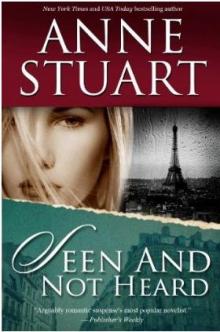 Seen and Not Heard
Seen and Not Heard Never Marry a Viscount
Never Marry a Viscount Heartless
Heartless The Devil's Waltz
The Devil's Waltz Hidden Honor
Hidden Honor Silver Falls
Silver Falls Fire and Ice
Fire and Ice Nightfall
Nightfall Never Trust a Pirate
Never Trust a Pirate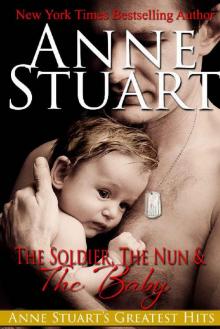 The Soldier and the Baby
The Soldier and the Baby Still Lake
Still Lake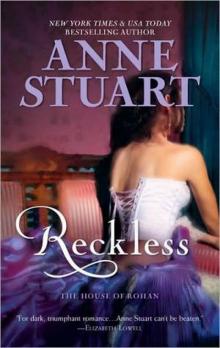 Reckless
Reckless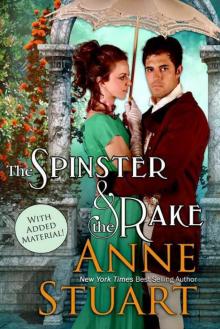 The Spinster and the Rake
The Spinster and the Rake Winter's Edge
Winter's Edge At the Edge of the Sun
At the Edge of the Sun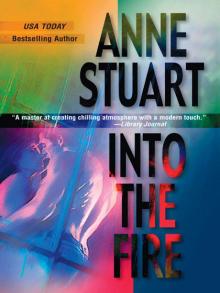 Into the Fire
Into the Fire Night of the Phantom
Night of the Phantom Ritual Sins
Ritual Sins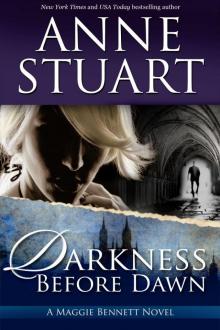 Darkness Before the Dawn
Darkness Before the Dawn Against the Wind
Against the Wind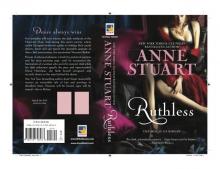 Ruthless
Ruthless The Catspaw Collection
The Catspaw Collection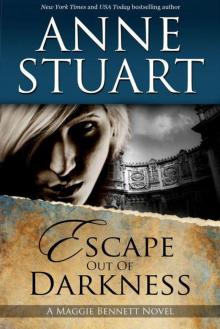 Escape Out of Darkness
Escape Out of Darkness The Widow
The Widow Shameless
Shameless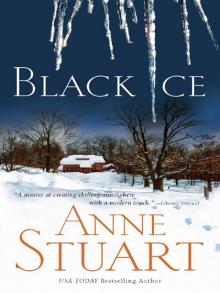 Black Ice
Black Ice Breathless
Breathless Shadows at Sunset
Shadows at Sunset Falling Angel
Falling Angel Housebound
Housebound Cold as Ice
Cold as Ice The Wicked House of Rohan
The Wicked House of Rohan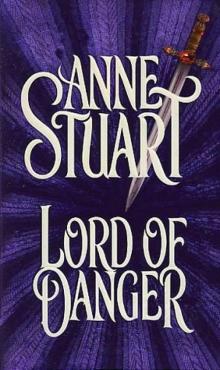 Lord of Danger
Lord of Danger The High Sheriff of Huntingdon
The High Sheriff of Huntingdon Wildfire
Wildfire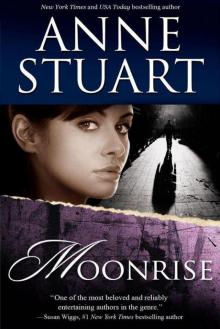 Moonrise
Moonrise The Demon Count's Daughter
The Demon Count's Daughter Date With a Devil
Date With a Devil To Love a Dark Lord
To Love a Dark Lord Driven by Fire
Driven by Fire Special Gifts
Special Gifts Ice Storm
Ice Storm Shadow Lover
Shadow Lover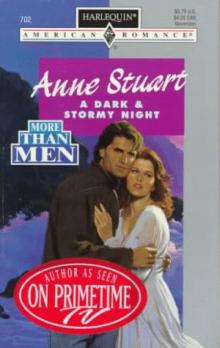 A Dark & Stormy Night
A Dark & Stormy Night Now You See Him...
Now You See Him... Lady Fortune
Lady Fortune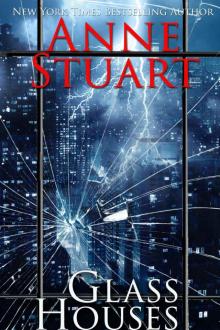 Glass Houses
Glass Houses A Rose at Midnight
A Rose at Midnight Prince of Swords
Prince of Swords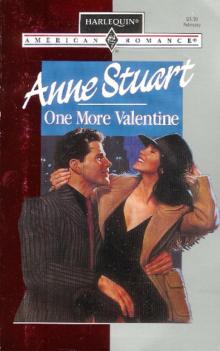 One More Valentine
One More Valentine Return to Christmas
Return to Christmas Tangled Lies
Tangled Lies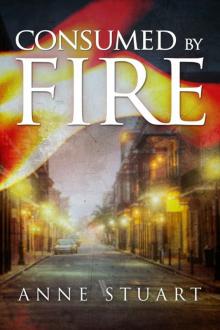 Consumed by Fire
Consumed by Fire The Fall of Maggie Brown
The Fall of Maggie Brown Wild Thing
Wild Thing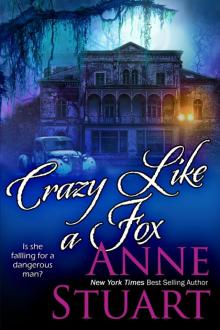 Crazy Like a Fox
Crazy Like a Fox The Demon Count
The Demon Count Prince of Magic
Prince of Magic Wildfire (The Fire Series Book 3)
Wildfire (The Fire Series Book 3)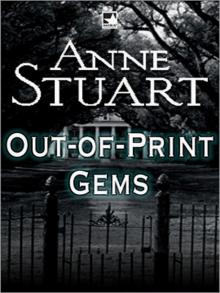 Anne Stuart's Out-of-Print Gems
Anne Stuart's Out-of-Print Gems Shadow Dance
Shadow Dance Under an Enchantment: A Novella
Under an Enchantment: A Novella Demonwood
Demonwood Blue Sage (Anne Stuart's Greatest Hits Book 3)
Blue Sage (Anne Stuart's Greatest Hits Book 3) Barrett's Hill
Barrett's Hill Angel's Wings (Anne Stuart's Bad Boys Book 5)
Angel's Wings (Anne Stuart's Bad Boys Book 5)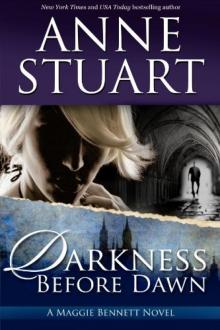 Darkness Before Dawn
Darkness Before Dawn The Right Man
The Right Man The Houseparty
The Houseparty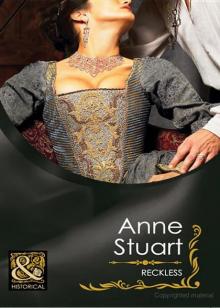 Reckless_Mills & Boon Historical
Reckless_Mills & Boon Historical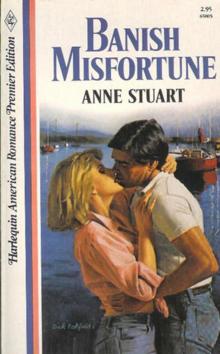 Banish Misfortune
Banish Misfortune Angel's Wings
Angel's Wings Chain of Love
Chain of Love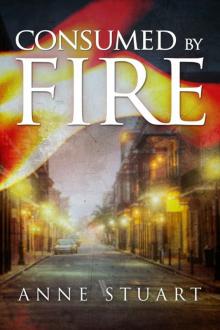 Consumed by Fire (The Fire Series)
Consumed by Fire (The Fire Series) Partners in Crime (Anne Stuart's Bad Boys Book 4)
Partners in Crime (Anne Stuart's Bad Boys Book 4)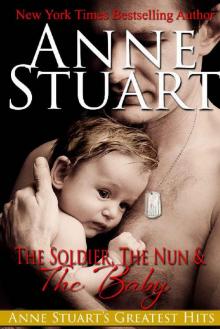 The Soldier, The Nun and The Baby (Anne Stuart's Greatest Hits Book 2)
The Soldier, The Nun and The Baby (Anne Stuart's Greatest Hits Book 2)